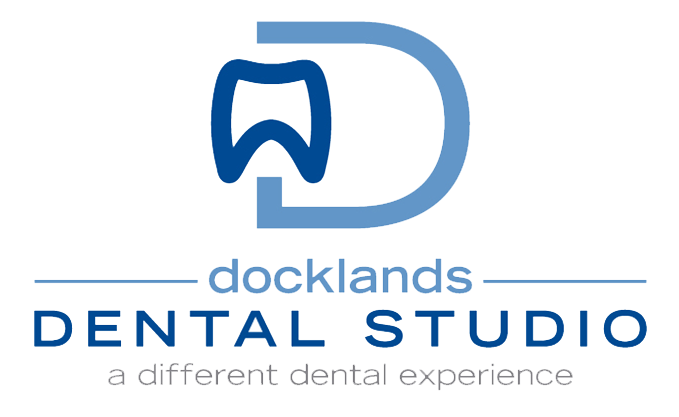Periodontal Disease Treatment
The word periodontal refers to gum tissue, so periodontal disease is gum disease, and periodontal treatment means treating the gums. Though you probably don’t think much about your gums if they’re healthy, their job is essential to your continued, good oral health. Gum tissue works with bones to support teeth. Without gums, teeth would not stay in the jaw. Furthermore, gum disease is a common condition that usually begins with a mild case of gingivitis, but it can escalate to advanced periodontitis, with necrosis of gum and bone tissue, and loss of teeth. At Docklands Dental Studio, our team can help you deter or treat gum disease, for great oral health.
About Gum Disease
Gum disease usually begins as a result of poor oral health, but some factors increase the risk for developing this chronic condition, for which there is no cure. Tobacco use, excessive alcohol consumption, genetic predisposition, hormone changes, specific diseases, and some medications can contribute to the development of gum disease. Diligent daily brushing and flossing at home, coupled with a tongue scraper and antibacterial mouth wash, can help deter periodontal infection. Attending regular checkups and cleanings will also help keep your gums healthy.
Periodontal disease is the fifth leading disease in our country, so it is common. Half of all tooth loss occurs because of dental caries and/or gum disease. In Australia, people over 45 are at greatest risk for gum disease, because proclivity increases with age. That said, children can certainly be victims of gum disease, particularly during puberty or if they use an albuterol inhaler. In addition, men are one and a half times more likely to develop moderate to severe gum disease, and those in remote areas tend to have a greater occurrence.
Diagnosing Gum Disease
At a dental checkup and cleaning, we’ll probe the depth of your periodontal pockets to determine whether bacteria have eroded the connective tissues that hold your gums to your teeth. A depth over 3mm indicates the presence of periodontal disease, in which case we may suggest a deep cleaning.
Periodontal Disease Treatment
At a non-surgical periodontal disease treatment appointment, we perform deep cleaning, which entails scaling and root planing. Scaling is the cleaning of teeth below the gum line, to remove plaque and tartar. Root planing smooths rough ridges on teeth roots, to eliminate areas prone to plaque and tartar buildup beneath the gum line. In some cases, we may apply topical antibiotics to address infection. Deep cleanings takes time, so you may require multiple appointments, scheduled closely together.
Once you develop gum disease, you’ll require dental cleanings every few months. In addition to cleaning your teeth at these visits, we’ll also chart periodontal pocket depth. Treatment should result in a lessening of depth, which indicates that connective tissues are reattaching.
We will also talk with you about your lifestyle habits, nutrition, and oral health routine at home. Changes to some of these factors could help you heal and deter recurrence. Should your periodontal disease advance to the point where non-surgical therapy will not be sufficient, we will refer you to a periodontist for evaluation and treatment.
Schedule Your Consultation Now
Do your gums bleed when you brush? Are they red, sore, swollen, or receding? These symptoms could indicate periodontal disease. Gum disease is all too common, and while it is chronic, it’s also treatable. If you’ve not seen a dentist for a checkup and cleaning recently, call Docklands Dental Studio now to schedule an appointment with our caring professionals.
Call: (03) 9021 9487
Email: info@docklandsdentalstudio.com.au
57 Merchant St,
DOCKLANDS VIC 3008
Open:
Monday-Friday: 8:30am-5pm
Thursday: 8:30am-6pm
Saturday: 9:00-3pm
Cancellation Policy
There is a cancellation fee of $50 in case cancellation is made less than 48hours.
SERVICES
